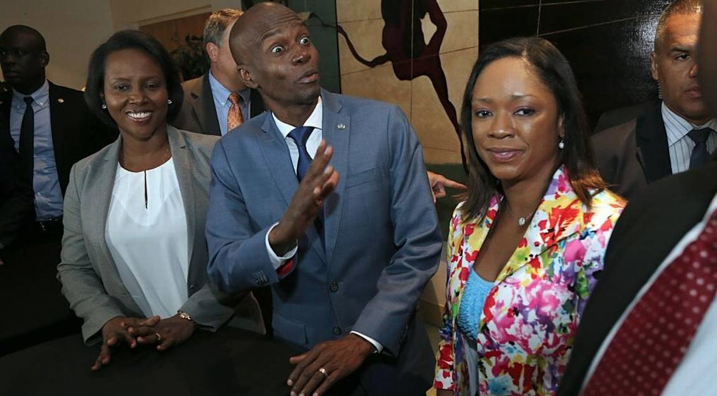MIAMI — Christian Emmanuel Sanon, the Haitian American pastor who hired former Colombian soldiers to protect him in Haiti while he aspired to replace President Jovenel Moïse, is now being charged with conspiring to kidnap and assassinate Haiti’s leader, according to a revised indictment filed Wednesday in Miami federal court.
Sanon, 65, was previously charged a year ago with conspiring to smuggle bullet-proof vests to Haiti for the Colombians, a violation of U.S. export laws, and plotting a “military expedition against a friendly nation,” a violation of the U.S. Neutrality Act.
But the amended indictment filed by federal prosecutors in Miami places Sanon in the deadly plot that led to Moïse’s middle-of-the-night assassination on July 7, 2021. The addition of the more serious charges against Sanon represents a significant development because both federal prosecutors and FBI agents had said in court hearings and documents that Sanon was aware of the plot to arrest and overthrow Haiti’s president but unaware of the final decision by others to kill him.
Sanon had been in the running to be president during a botched June 14, 2021, attempt at the Port-au-Prince international airport to arrest Moïse upon his return from a trip to Turkey. Days after the assassination, he was arrested by Haitian authorities at his home in Port-au-Prince.
Until this week, U.S. investigators had given considerable weight to evidence that suggested the plotters had abandoned Sanon as Moïse’s successor after the airport saga, in favor of Haitian Supreme Court Justice Windelle Coq Thélot. Thélot has not been charged by U.S. authorities but she is wanted in Haiti, where she remains a fugitive after nearly three years.
Since Sanon’s extradition from Haiti early last year, six other defendants in the case have pleaded guilty and have been cooperating with federal authorities, including providing evidence about Sanon’s role in the plot that was coordinated in South Florida, Haiti and Colombia. FBI agents and prosecutors have also had ample time to review cellphone records, emails and text messages that align with the testimony of cooperating witnesses.
Sanon’s defense attorney, Zeljka Bozanic, could not be immediately reached for comment Wednesday. But in an interview last week, she said Sanon had hoped to replace Haiti’s president and was not aware or part of any conspiracy to kill him.
“It is clear he was not the mastermind,” Bozanic told the Miami Herald.
The substantial revision in the U.S. case follows an investigative report published by the Herald last week that revealed that investigators in Haiti view Sanon as one of the “authors” of the assault on the president’s home in the hills above Port-au-Prince.
Haiti investigative judge Walther Wesser Voltaire is expected to formally issue charges in the case soon. More than 40 people have been jailed in Port-au-Prince for the president’s murder, including former Colombian soldiers and members of Moïse’s presidential security detail. However, no one has been formally charged.
Of the original 11 defendants charged in the U.S. case in Miami, five have pleaded guilty to conspiring to kidnap and kill Moïse and two related counts involving providing “material support” in the violent coup. Those offenses carry potential sentences of life in prison.
A sixth defendant has pleaded guilty to conspiring with Sanon and the others in backing the military expedition against Haiti and conspiring with Sanon in exporting the bullet-proof vests to the contingent of 22 Colombians, most of them once members of elite military units. The former soldiers were allegedly hired by a Miami-area security company to carry out the slaying of Moïse. Those two offenses carry up to 10 years in prison.
Sanon, who has pleaded not guilty to the original charges against him, was looking at the possibility of up to 10 years in prison. But the new charge of conspiring to kill Moïse carries a possible life sentence.
A physician and pastor who split his time between Port-au-Prince and South Florida, Sanon participated in several meetings before the attack. He was sometimes referred to as “President” as he conducted meetings at the Tower Club in downtown Fort Lauderdale and at a rented house in Port-au-Prince in the spring of 2021 before the brazen attack.
